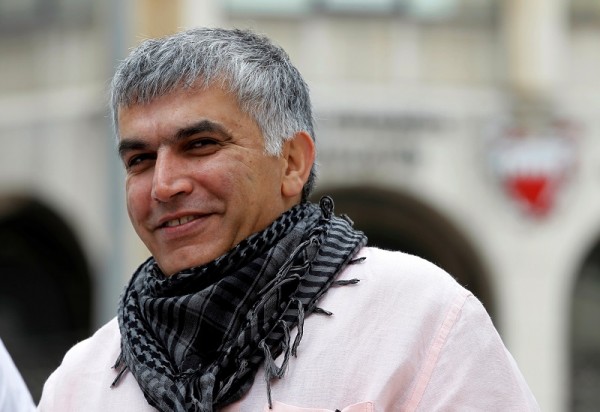The International Press Institute (IPI) on Monday expressed concern at a crackdown on journalists in Bahrain over the past weekend as they sought to cover protests that accompanied a controversial Formula 1 racing event. A number of journalists were denied entry into Bahrain, and those who were allowed in were prevented from reporting on demonstrations. In some instances they were arrested, threatened and even deported.
“It is unacceptable that journalists be harassed, detained and even assaulted while trying to cover events in the public interest,” said Acting Deputy Director Anthony Mills. “IPI condemns the crackdown on journalists simply doing their job.”
Journalists from Sky News, CNN, Reuters, the Financial Times and other media outlets were denied entry into Bahrain, the Guardian reported. Observers said that the ban was aimed at preventing reports on the ongoing political unrest and anti-government protests.
Danish journalist Rasmus Tanthodlt, who works with the Danish television channel TV2, was denied entry twice, even though he had travelled to Bahrain two weeks earlier. According to the Bahrain Centre for Human Rights (BCHR), the refusal of Tantholdt’s visa may have been in connection with his previous reports about protests in support of human rights activist Abdulhadi al-Khawaja, who is currently on hunger strike. TV2 reported on its website on April 21 that Rasmus Tantholdt, after being denied a journalist’s visa, tried to enter Bahrain on a tourist visa, with a ticket to the F1 Grand Prix, but was again denied entry.
Journalists who were allowed into the country faced grave challenges reporting on protests.
Members of a Channel 4 News team, including foreign affairs correspondent Jonathan Miller, were arrested and subsequently deported. They arrived back in London in the morning of April 23.
“We are operating without accreditation, so when we were caught filming a planned demonstration in one of the Shia villages – they [police] have not been particularly pleasant. They’ve been very aggressive towards me, my crew and driver and Dr Al Shihabi, a prominent human rights activist…. Right now we’re concerned for our driver…things are rather worse for Bahrainis in police custody,” Miller said while being taken to a police station, according to the Channel 4 news website.
Reports said that the driver, Ali Al Aali, was beaten in front of the group and then taken away. His whereabouts remained unknown. Channel 4 reported that Al Shihabi was released several hours after being taken into custody.
Colin Freeman, a journalist with The Sunday Telegraph, and his Bahraini fixer Mohammed Hasan were also arrested on April 22. Writing for the Telegraph, Freeman said that his team was driving through a Shia Muslim neighbourhood, when they were stopped and arrested, on suspicion of attending an “illegal demonstration”. They were later released. According to BCHR, Hasan had been arrested and beaten by police already on April 21 for escorting journalists and showing them the treatment of protesters by police.
BCHR also reported that two Japanese journalists for Asahi Shimbun newspaper were arrested and taken to a police station.
A photojournalist with EPA German news agency, Mazen Mahdi, was covering protests in a village when he was stopped by riot police, who threatened to break his camera, according to BCHR. In a message on Twitter, Mahdi said that the police tried to arrest him and prevented him from taking photos of the area where a protester had been found dead on Saturday, April 21.


